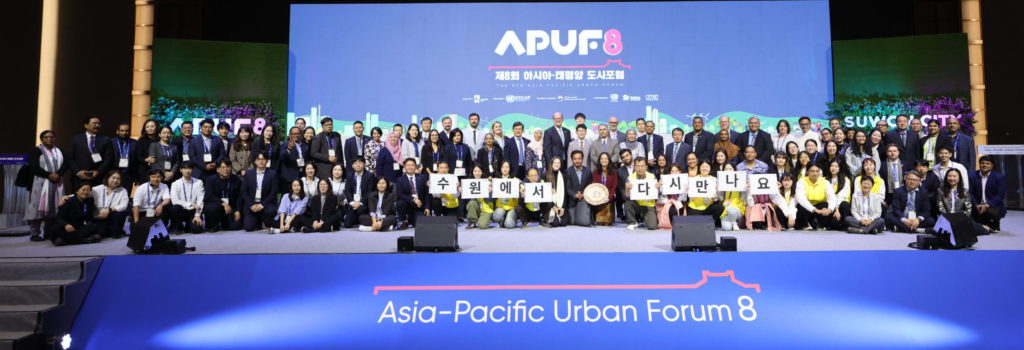#2.1 Overview and Trend of Water and Sanitation
Overview of the Water and Sanitation Crisis
The current availability of clean water is barely enough to meet the requirements, with only a few locations in the world having full access[1]. Also, water scarcity remains a pressing issue, affecting more than 40% of the global population. According to global projections, by 2025, 1.8 billion people will live in countries or regions facing absolute water shortage, and two-thirds of the world population could be under conditions of acute water stress[2]. The world produces wastewater estimated to be over 300 billion cubic meters per year, further exacerbating the water crisis and posing a threat to public health and the environment. This crisis not only impacts health but is also interconnected with poverty, development level, education, nutrition, and gender equality[3]. On the margins of the World Economic Forum, water crises are listed as one of the top five global risks by impact and signed up by various countries and organizations to tackle the water and sanitation crisis.
In 2021, the UN declared the next ten years as the Water Action Decade, emphasizing the urgent need for action and collaboration to address water and sanitation challenges globally.
Water and Sanitation Trend
The 9th World Water Forum: The Dakar Declaration
 The 9th World Water Forum was held from 21-26 March 2022 in Dakar, Senegal. The key outputs were the Dakar Declaration, four international action plans at different institutional levels, the launch of a global youth movement for water, and the recommendations, commitments, and initiatives made by stakeholders during the forum.
The 9th World Water Forum was held from 21-26 March 2022 in Dakar, Senegal. The key outputs were the Dakar Declaration, four international action plans at different institutional levels, the launch of a global youth movement for water, and the recommendations, commitments, and initiatives made by stakeholders during the forum.
The key guiding vision emerges from the forum and hinges on five principal pillars: accelerated implementation of the human rights to water and sanitation and humanitarian law, guaranteeing water security and climate resilience, ensuring adequate financing, ensuring inclusive water governance, and strengthening water cooperation. These five pillars of the “Blue Deal” are associated with corresponding action plans at the ministerial level, for parliamentarians, local and regional authorities, river basin organizations, and for local authorities.
The Eighth Asia-Pacific Urban Forum (APUF-8)
City-level partnerships have emerged as a key approach to addressing water and sanitation challenges as well.
 The Eighth Asia-Pacific Urban Forum (APUF-8) held in 2023, co-organized by the United Nations Economic and Social Commission for Asia and the Pacific (ESCAP) and Suwon City, in strategic partnership with the Ministry of Land, Infrastructure and Transport of the Republic of Korea, and in cooperation with CityNet, UN-Habitat, and Habitat for Humanity International as well as a range of supporting partner organizations. During the APUF-8, water management and sanitation issues were highlighted as critical components of sustainable urban development.
The Eighth Asia-Pacific Urban Forum (APUF-8) held in 2023, co-organized by the United Nations Economic and Social Commission for Asia and the Pacific (ESCAP) and Suwon City, in strategic partnership with the Ministry of Land, Infrastructure and Transport of the Republic of Korea, and in cooperation with CityNet, UN-Habitat, and Habitat for Humanity International as well as a range of supporting partner organizations. During the APUF-8, water management and sanitation issues were highlighted as critical components of sustainable urban development.
#2.2 Benefits of City-to-City Cooperation for Water and Sanitation Crisis and CityNet’s Efforts
By engaging in city-to-city cooperation, cities leverage each other’s strengths to find sustainable solutions for water management and sanitation. In a knowledge exchange between cities for water management and sanitation, cities share expertise in sustainable practices such as flood prevention, wastewater treatment, and water reuse and gain valuable insights into efficient urban planning and infrastructure development tailored to address its unique water and sanitation challenges. This collaborative effort facilitates mutual learning and supports the development of innovative solutions for both cities.
CityNet Projects on Waste and Water Management: CityNet Services for Sidoarjo
From 12 to 13 July 2023, CityNet Secretariat had the privilege to provide CityNet Services for the delegation of Sidoarjo at the request of Sidoarjo Regency, focused on Seoul’s smart city practices, in the areas of waste and water management. The program consisted of lectures, briefings, and field visits aimed at providing insights into successful smart city strategies, technological innovations, and citizen engagement in Seoul.
To gain practical knowledge, the delegation conducted site visits to notable facilities in Seoul, including the Mapo Resource Recovery Center, Ddukdo Arisu Water Purification Center, and Seoul Smart City Center operated by the Seoul Digital Foundation. These visits allowed the delegation to witness sustainable waste management solutions in action, gain insight into Seoul’s extensive water purification process, and explore the city’s digital infrastructure with citizen-centric services.
CityNet Co-hosted Best Waterworks Practices: 2016 Arisu Waterworks Workshop for Chinese Cities
CityNet and the Waterworks office (Arisu) of the Seoul Metropolitan Government jointly organized the 2016 Arisu Waterworks Workshop from September 25 to October 1. City officers from seven Chinese cities participated in the Arisu Waterworks Workshop. Tailored specifically for Chinese cities, the workshop transmitted the know-how and lessons learned from the waterworks policy implemented by Arisu, which is often regarded to have one of the best waterworks practices in the Asia Pacific. Additionally, the workshop was organized into seminars on waterworks policies and a site visit to maximize the effectiveness of the workshop, such as the Arisu Water Treatment Centre, Sewage Treatment Centre, and the Seoul Water Research Institutes.
Conclusion
In conclusion, the global water and sanitation crisis poses significant challenges, with rising scarcity impacting health, poverty, and the environment. Initiatives like the Dakar Declaration and the Eighth Asia-Pacific Urban Forum demonstrate a collective commitment to address these issues.
The UN’s declaration of the Water Action Decade emphasizes the urgency for global collaboration, laying the groundwork for a collective and resilient urban future. Efforts at both international and city levels are crucial for ensuring a sustainable future with clean water and effective sanitation. City-to-city cooperation, exemplified by projects such as CityNet Services for Sidoarjo, offers practical benefits like knowledge exchange and improved resource efficiency. As cities unite for a future of clean water and effective sanitation, they will forge a path toward sustainable urban development, emphasizing collaboration, innovation, and shared responsibility of creating resilient water infrastructure on a global scale.
This article has been written by Ara Ko, who can be reached at pg.assistant3@citynet-ap.org.
References
[1] J. E. Sosa-Hernández et al. “Sources of antibiotics pollutants in the aquatic environment under SARS-CoV-2 pandemic situation”. Dec. 2021.
[2] C. E. Mwebaze, J. M. Majaliwa, J. Wanyama and G. Gabiri. “Assessing the Impact of Management Options on Water Allocation in River Mubuku-Sebwe Sub-Catchments of Lake Edward-George Basin, Western Uganda”. Jul. 2021.
[3] J. C. Sherry. “Perceptions of Water Services and Innovations to Improve Water Services in Tanzania”. Dec. 2018.

Ara Ko is a Program Assistant at CityNet, primarily assisting for capacity building and cluster activities. Prior to joining CityNet, she worked as the focal point for the Korea Disaster Relief Team’s Medical Team at the National Medical Center. She holds a Bachelor’s degree with a double major in Chemical Engineering and Political Science. She can be reached at pg.assistant3@citynet-ap.org.



